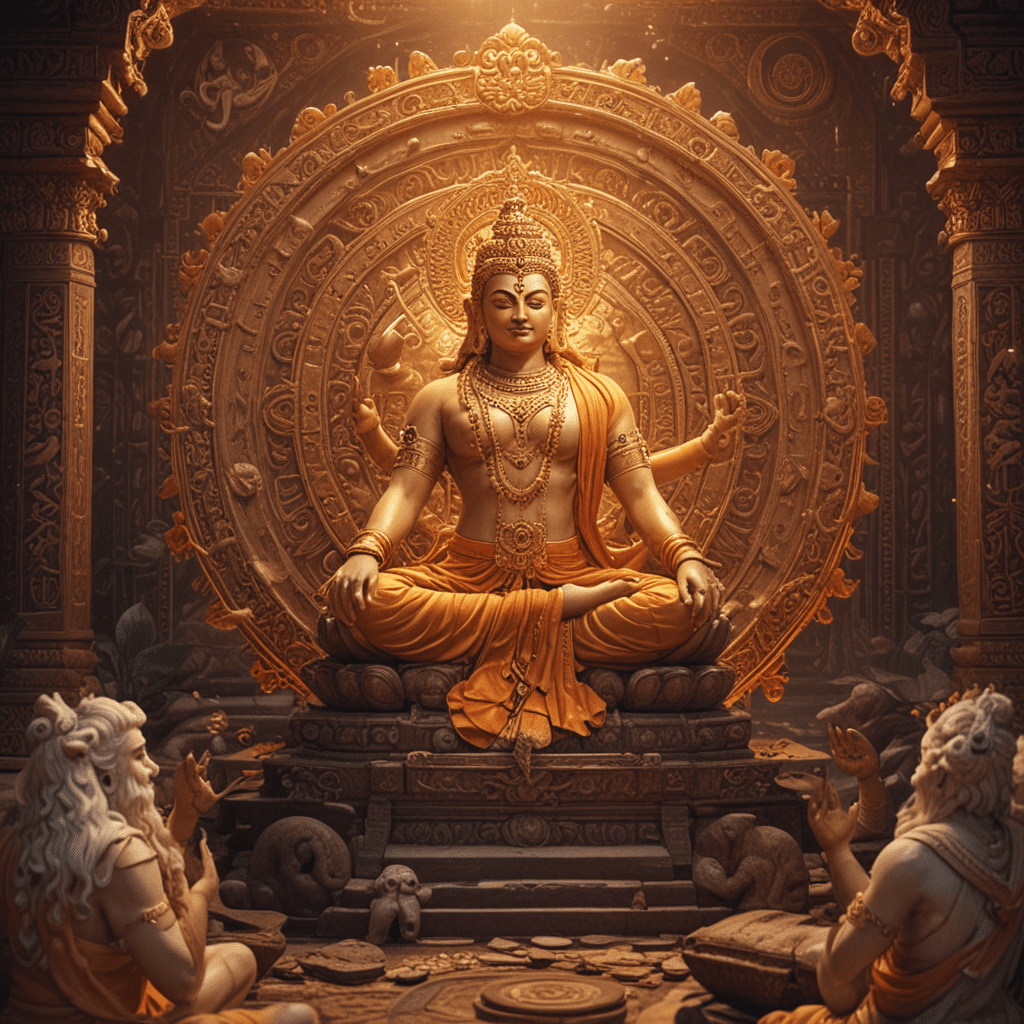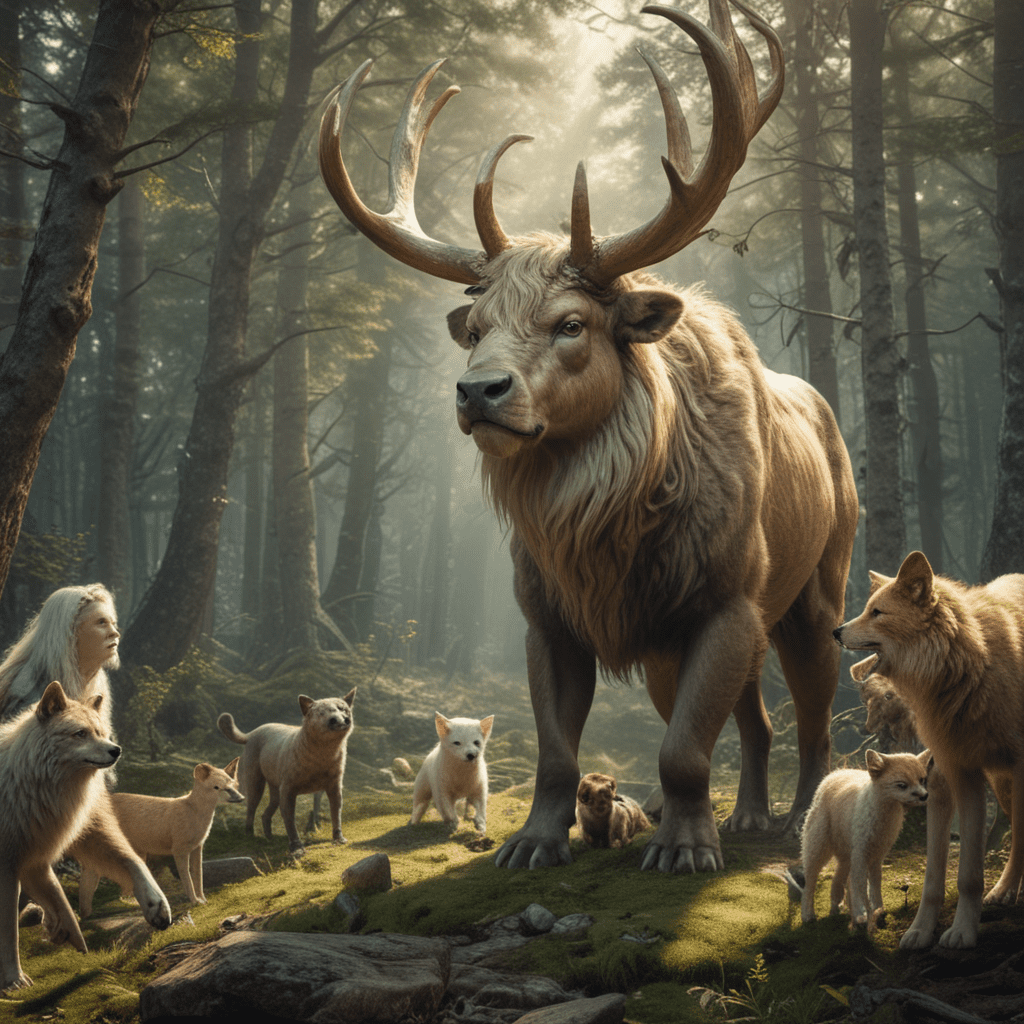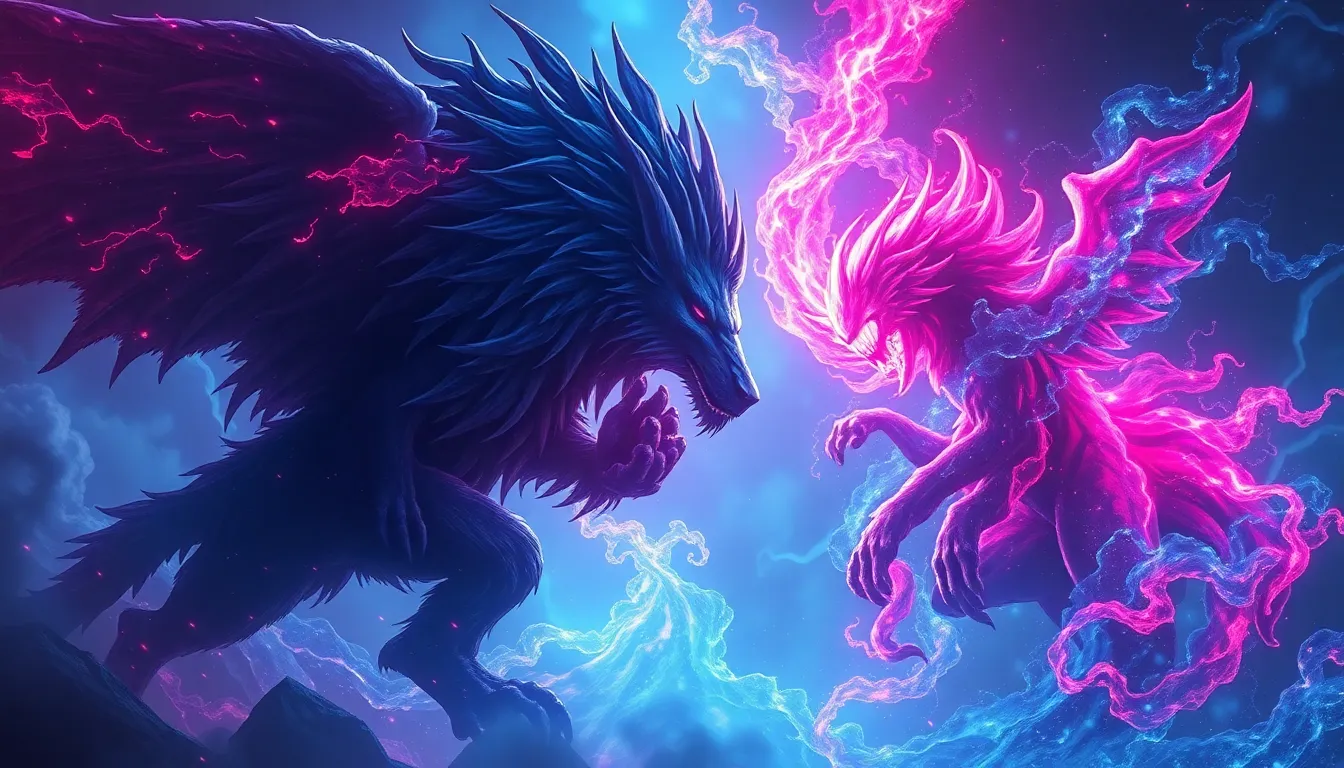1. Introduction to Dharma
Dharma is a fundamental concept in Hindu mythology, representing the universal moral principles governing the conduct of individuals and societies. It encompasses a vast array of ethical values, including righteousness, justice, truthfulness, compassion, and non-violence. Dharma guides individuals towards virtuous living and ensures the harmonious functioning of the cosmos.
2. Defining Dharma in Hindu Mythology
Dharma is derived from the Sanskrit root "dhri," meaning "to hold" or "to support." It refers to the inherent order or law that sustains the universe and guides all beings. Dharma is considered an eternal and immutable principle that transcends individual desires and personal preferences. It is believed to have been revealed to humanity through divine sources such as the Vedas and the epics.
3. The Role of Dharma in Maintaining Cosmic Order
Dharma plays a crucial role in maintaining the balance and harmony of the universe. It governs the natural cycles, the movements of the planets, and the interactions between all living beings. By adhering to their respective duties and responsibilities, individuals contribute to the preservation of cosmic order and ensure the well-being of society. Dharma prevents chaos and disintegration, fostering a harmonious coexistence among all elements of creation.
4. Dharma as a Duty and Responsibility
Dharma is not merely an abstract concept but a practical guide for daily living. It dictates the specific duties and responsibilities of individuals based on their caste, gender, age, and station in life. For example, the dharma of a warrior is to protect the innocent and uphold justice, while the dharma of a householder is to provide for their family and lead a virtuous life. By fulfilling their dharma, individuals contribute to the overall welfare of society and attain personal fulfillment.
5. Dharma and the Four Ashramas
The concept of dharma is closely intertwined with the four ashramas, or stages of life, in Hindu mythology. Each ashrama has its own specific duties and responsibilities:
- Brahmacharya (Student): Focus on education and spiritual development
- Grihastha (Householder): Marriage, raising a family, and supporting society
- Vanaprastha (Forest Dweller): Gradual withdrawal from worldly affairs and pursuit of spiritual growth
- Sannyasa (Renunciate): Complete renunciation of material life and devotion to spiritual liberation
6. Dharma and the Four Purusharthas
Dharma is also closely related to the four purusharthas, which are the fundamental goals of human life according to Hindu philosophy. These include:
- Artha (Material Prosperity): Economic security and success in worldly pursuits.
- Kama (Desire and Pleasure): Sensory experiences, love, and fulfillment of legitimate desires.
- Dharma (Righteousness): Adherence to ethical principles, duty, and moral obligations.
- Moksha (Liberation): Ultimate spiritual liberation and union with the divine.
Dharma is considered the foundation upon which the other purusharthas can be achieved. It provides the moral and ethical framework for individuals to pursue material prosperity, experience life's pleasures, and ultimately attain spiritual enlightenment.
7. Dharma in the Ramayana
The Ramayana is one of the most popular epics in Hindu mythology and serves as a classic example of dharma in action. The protagonist, Rama, is an embodiment of righteousness and duty. He faces numerous challenges and sacrifices to fulfill his dharma as a son, brother, husband, and king. The Ramayana illustrates how adherence to dharma can lead to personal growth, the protection of the innocent, and the triumph of good over evil.
8. Dharma in the Mahabharata
Another major Hindu epic, the Mahabharata, portrays the complexities of dharma in a more nuanced manner. The central conflict revolves around the struggle between the Pandavas and the Kauravas for the kingdom of Hastinapur. While the Pandavas are portrayed as the righteous side, they are forced to make difficult choices and confront moral dilemmas throughout the war. The Mahabharata explores the consequences of deviating from dharma and the importance of finding balance between personal desires and ethical obligations.
9. Dharma in Modern Hinduism
Dharma continues to play a significant role in Hinduism today, shaping individual conduct as well as social and political life. It influences religious rituals, ethical decision-making, and the formation of laws and policies. Modern interpretations of dharma emphasize its relevance to issues such as environmental protection, social justice, and interfaith dialogue.
10. Conclusion: The Significance of Dharma
Dharma is a fundamental concept in Hindu mythology, providing a moral compass for individuals and societies. It guides us towards virtuous living, maintains cosmic order, and facilitates the attainment of the ultimate goals of human existence. By adhering to their respective duties and responsibilities, individuals contribute to the harmonious functioning of the universe and ensure their own spiritual growth. Dharma remains a timeless and invaluable principle that continues to shape Hindu thought and practice today.
FAQs
-
What is the meaning of dharma in Hindu mythology?
-
Dharma refers to the universal moral principles that govern the conduct of individuals and societies in Hindu mythology. It encompasses values such as righteousness, justice, truthfulness, compassion, and non-violence.
-
Why is dharma important in Hinduism?
-
Dharma plays a crucial role in maintaining the balance and harmony of the universe. It guides individuals towards virtuous living, ensures the smooth functioning of society, and facilitates the attainment of the ultimate goals of human existence.
-
How can we follow dharma in our daily lives?
-
We can follow dharma in our daily lives by fulfilling our duties and responsibilities, upholding ethical principles, and living a life of virtue. It involves treating others with respect and compassion, being honest and truthful, and contributing positively to society.
-
Can dharma change over time?
-
While the fundamental principles of dharma remain eternal, its interpretation and application may evolve over time to meet the changing needs and circumstances of society. Modern interpretations of dharma often emphasize its relevance to contemporary issues such as environmental protection, social justice, and interfaith dialogue.



